Ugetsu (1953)
Dir. Kenji Mizoguchi
Writ. Matsutarô Kawagachi, Akinari Ueda, Yoshikata Yoda
w/ Masayuki Mori, Machiko Kyô, Kinuyo Tanaka, Eitarô Ozawa
When Genjuro the potter decides to visit the big city with his wares, he sparks the interest of his neighbor, Tobei, a farmer with visions of becoming a samurai. Genjuro won't take his wife and wee son with him, lest outlaws bring his family to ruin, nor will Tobei allow his young wife to venture out with him, for similar reasons. When the potter's wife is given a handful of gold, she doesn't mind much, but all she really wants is a happy, peaceful family. The gold is a neutrality to her, but the potter's greedy, darker nature has been sparked and it makes him irritable. He ends up leaving with a mass production of his work and all but forgetting about his family when he meets a woman of great beauty and her servant. He now spends all of his time with this woman, watching her dance and even marrying her before he discovers that they are not alone. The ghost of her husband haunts the palace. It is something that she and her servant seem to take lightly, even if it frightens them.
Writ. Matsutarô Kawagachi, Akinari Ueda, Yoshikata Yoda
w/ Masayuki Mori, Machiko Kyô, Kinuyo Tanaka, Eitarô Ozawa
When Genjuro the potter decides to visit the big city with his wares, he sparks the interest of his neighbor, Tobei, a farmer with visions of becoming a samurai. Genjuro won't take his wife and wee son with him, lest outlaws bring his family to ruin, nor will Tobei allow his young wife to venture out with him, for similar reasons. When the potter's wife is given a handful of gold, she doesn't mind much, but all she really wants is a happy, peaceful family. The gold is a neutrality to her, but the potter's greedy, darker nature has been sparked and it makes him irritable. He ends up leaving with a mass production of his work and all but forgetting about his family when he meets a woman of great beauty and her servant. He now spends all of his time with this woman, watching her dance and even marrying her before he discovers that they are not alone. The ghost of her husband haunts the palace. It is something that she and her servant seem to take lightly, even if it frightens them.
When a mage finds Genjuro, he recalls him to his former life, and places an incantation upon his torso. He can not continue to neglect his family because the woman he has bigotrously married (along with her servant) is an apparition and their relationship is forbidden. The servant finds his body so marked, and bawls him out for having pushed away a love that was matchless. The incantation works, and he is forced to retrieve his home. In the meantime, our would-be samurai has joined the war that has more than threatened both his own wife and his neighbor's family. His wife has joined the world's oldest profession, just to get by, and his neighbor's wife is struggling to keep her boy fed and to keep herself away from the usual raping by marauders.
Needless to say, this is fertile ground for Mizoguchi to explore the psychology of women and the poetry of the soul, which are sort of his trademarks. He uses long camera set-ups without a lot of intercutting to achieve a sense of stillness in chaos, and the results are so realistic that the studio sets used liberally are pretty often ignorable, and sometimes not even noticeable until the second or third viewing. The performances he evinces from his actors is an absolute labor of love. They swim around each other as though perfectly at home, like a litter of newborn puppies, and to watch them tackle the subject matter fearlessly is a total joy.
This is a sort of rarity in the no-nonsense bulk cinema of the last thirty years or so. As a sort of comparison, perhaps try thinking of or watching Shakespeare in Love before or after this.
There was a time that this sort of cinema was very great indeed.

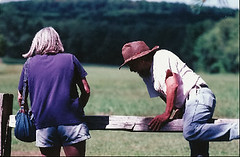
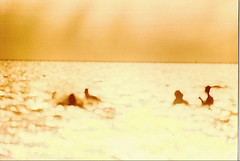
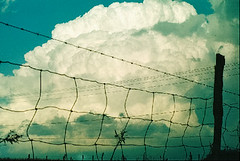
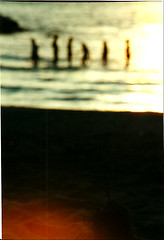
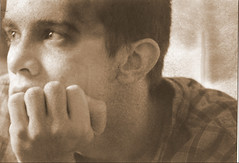
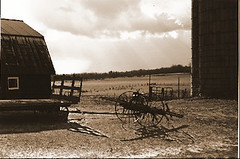
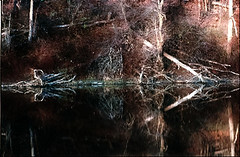






0 Comments:
Post a Comment
<< Home